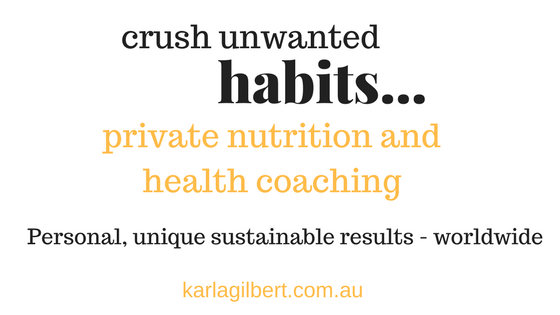
Some days it feels like superhuman powers are required just to get through.
Instead of reaching for a pep me up coffee that can have an undesired long-term effect what other simple solutions are there to make sure we’re on our game each day and bring more energy?
It’s been said that you can’t change the number of hours you have in a day, but you can change the amount of energy you bring to those hours. Want to be more productive? Start with getting your energy levels right first.
So what can we do to boost our energy levels with a view to being more productive?
These three places are a great place to start:
3 Ways To Bring More Energy To Your Day
1. Exercise
Too many people look at exercise as just a weight-loss tool. They believe if they don’t need to lose weight (or weight loss isn’t a priority for them), then they don’t need to exercise.
The fact is, our bodies are designed to move. Unless we’re moving, our bodies aren’t operating at optimal capacity. Exercise is essential for good mental health and, as counter-intuitive as it seems, also boosts energy levels.
But that doesn’t necessarily mean hitting the gym or training for a marathon. Something as simple as a 30-minute walk each day is enough to give us the energy boost we need.
When should you exercise? Whenever you can fit it in. Morning exercisers love how it kicks off their day, to the point where they feel mentally sluggish if they don’t get their morning exercise. Midday exercisers love how it gives their brains a rest in the middle of the day and boosts their afternoon productivity. And afternoon/evening exercisers love how it dissipates the stresses of their day and helps them sleep better.
Figure out what works best for you, and then commit to it.

2. Sleep
Sleep is often the first thing that goes out the window when you’re flat to the ground trying to get through a to-do list a mile long.
While it’s generally accepted that adults need eight to nine hours of sleep at night to function well, I don’t necessarily agree with that. Mainly because I only need seven. So I’m more with Hal Elrod (author of Miracle Morning), who thinks each individual needs a different amount of sleep to function well and we all just need to figure out what that amount is. Then we need to make sure we don’t just get those hours, but that they are quality hours.
Unfortunately, it’s that quality that most of us struggle with—especially if we have kids.
The ironic thing is, we all know how important sleep is, and how unproductive we are without it—fuelling our bodies with coffee and holding our eyes open with matchsticks just to get through the day. Yet we keep staying up really late, or worse, going to bed on time but taking our phones to bed and spending an hour scrolling through Instagram. I won’t say getting quality sleep is easy, but we certainly do a lot to sabotage our chances.
Some simple tips for getting good sleep:
- Go to bed at the same time each night. (Our bodies like routine and rhythm.)
- Go to bed at a decent hour. My favourite ‘tool’ for this is to have a great book I’m really looking forward to reading.
- No screens an hour before bedtime. (I head to bed with that great book an hour before my ideal time to fall asleep.)
- No electronics in the bedroom. (Studies have shown they interrupt our sleep.)
- Exercise every day.
- Before you head off to bed, write down your ‘must-dos’ for the following day. Knowing exactly what’s in store will help your mind relax.
- Eat dinner at least two (preferably three) hours before bedtime.
- Have a notepad next to your bed so anything that wakes you up at 3 am can be quickly written down and then ‘forgotten’ about.
3. Food
Another key component of energy is food—something else we ignore when under the pump. Mind you, food seems to have become really complicated lately. Should you go Paleo, Whole30, no sugar, vegan, vegetarian … pegan?
The truth is, we all know how to eat healthily: choose food that’s made from scratch over packaged and processed food as much as possible, stick to eating food we’ve prepared ourselves, and control our portion sizes.
Don’t have time? Don’t like cooking? That’s okay. Neither do I, which is why I keep things really simple. (Editors note – did you catch my post on how to cook simply?)
For me, the hardest thing about moving from packaged food (the diet I used to have) to cooking my own food (my diet now) has always been that first attempt at making something. It takes time (and sometimes a few attempts) to learn a new recipe. But once I know how to cook something, I become very efficient at it.
For example, I can make a spinach and roast pumpkin salad from scratch in about ten minutes these days—five if I am organised enough to roast the pumpkin the day before. It sure beats warming up a meat pie for lunch.
While we’re on the topic of lunch, if you’re busy you may be tempted to grab something quick and easy and then eat it while working at your desk to stay productive. I used to do the same thing.
But then I forced myself to step away from my desk and all those screens at lunchtime, and eat my lunch while reading the paper or sitting on the verandah in the sun. And my afternoon productivity skyrocketed.
Don’t think you have time to do the same? Fifteen minutes is all you need. And we all have 15 minutes for lunch—trust me.
About the author
While trying to be ‘too perfect and juggling all of life’s balls, Kelly Exeter had a breakdown. While recovering from that breakdown she developed a framework for herself. One that stopped her burning out all the time. One that helped her stay on the right side of overwhelm. One that got her off the hamster wheel.
Practical Perfection shares that framework and shows how anyone whose self-imposed high standards are holding them back can live an excellent life.
IMAGINE WHAT IT FEELS LIKE TO BE LIVING WITH DAILY ENERGY?





